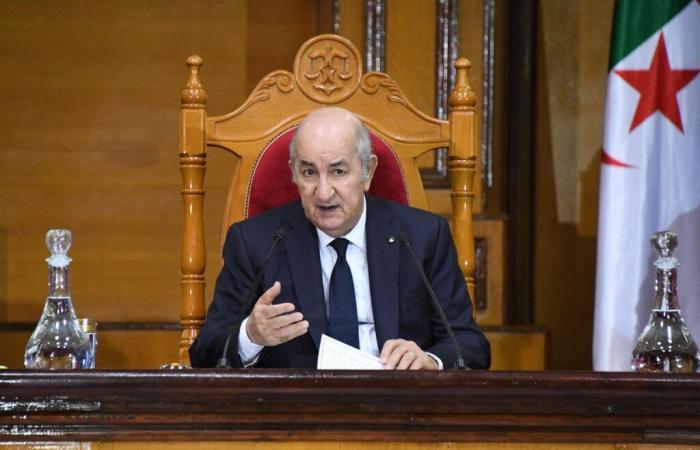The recent Algerian diplomatic adventures risk further compromising the credibility of the regime. By trying to establish itself as a mediator in regional crises, Algeria is exposing itself to growing criticism, particularly from its African neighbors. The failure of its transition proposal in Niger has highlighted its growing isolation on the international scene, while its strategic alignment with foreign partners reinforces the image of a regime that seeks to preserve its power at all costs, detriment to the principles he claims to defend.
“Persistence of acts of interference”, “Algeria’s proximity and complicity with the terrorist groups who are destabilizing Mali and to whom it has offered room and board”, “new interference by Algeria in the internal affairs of Mali”condemned with the utmost vigor: Bamako has never been so sanguine in a diplomatic outing. Recent events in Mali and Niger and even in Morocco have revealed the structural contradictions of the Algerian regime in its application of the principle of non-interference. Behind his usual speech, a maneuver that fools no one: maintaining a central role in regional fluctuations while marginalizing the influence of external actors, notably that of France and the English-speaking African powers.
Si Bamako “recalls that strategic options for the fight against armed terrorist groups, supported by foreign state sponsors, fall exclusively within the sovereignty of Mali”she invited Algiers “to stop making Mali a lever for its international positioning.” At the same time, Algeria had proposed to Niger a transition plan rejected by several stakeholders. This behavior demonstrates that the regime is no longer content to advocate state sovereignty, but now seeks to actively shape regional balances. This blatant contradiction has fueled suspicions that the doctrine of non-interference, so often mentioned, is only a rhetorical tool serving Algerian geopolitical interests.
A hypocrisy maintained by selective alliances
Algeria’s growing alliance with foreign powers also illustrates the opportunistic application of its doctrine. While the regime stands as a defender of African independence in the face of Western interference, it is increasing economic and military agreements with Moscow and Beijing, for example. These two capitals have a strong presence in Mali, which announced on January 25, 2024 the “end, with immediate effect”of the Algiers peace agreement, signed in 2015 and long considered ineffective, especially since the resumption in 2023 of hostilities against the central state and the Malian army by predominantly Tuareg separatist groups from the North supported by Algiers , in the wake of the withdrawal of the United Nations mission (Minusma), after ten years of presence.
Internal repression, a mirror of external contradictions
Internally, the Algerian regime exploits the discourse of non-interference to justify the repression of political opposition and social movements. Since the start of the popular uprising in 2019, accusations of “collusion with foreigners” have multiplied against journalists, activists and civil society organizations. This rhetoric reaches its peak when it is used to justify repressive policies. The 2012 law on NGO financing, which requires prior authorization for any external support, illustrates this desire to cut Algerian civil society off from its international relays. This lockdown, presented as a defense against interference, is in reality just a tool intended to muzzle dissenting voices.
While the regime persists in subverting the principle of non-interference, Algerian society aspires to a redefinition of this doctrinal framework. This divide is also reflected in the growing role of the Algerian diaspora. By bringing together international groups to support democratic demands, it placed itself in direct opposition to the official discourse, affirming that the link with foreign countries should no longer be perceived as a threat, but as an opportunity for political renewal.
A diplomacy that is getting bogged down
The discourse of non-interference, long a cornerstone of Algerian diplomacy, today comes up against its own contradictions. Between disguised interference abroad and authoritarian lockdown at home, the regime sacrifices the coherence of its doctrine to immediate strategic interests. This choice, if it persists, could accelerate the loss of legitimacy of an already contested power.
Historically, non-interference served as a framework for the construction of the post-independence Algerian state. This principle was established to cement national sovereignty and to deal with external interference, notably that of the former colonial power. The case of the Sahel definitively illustrates the variable geometry approach adopted by Algiers. It has transformed into a flexible but rusty political weapon, used to cover the regime’s flaws.






